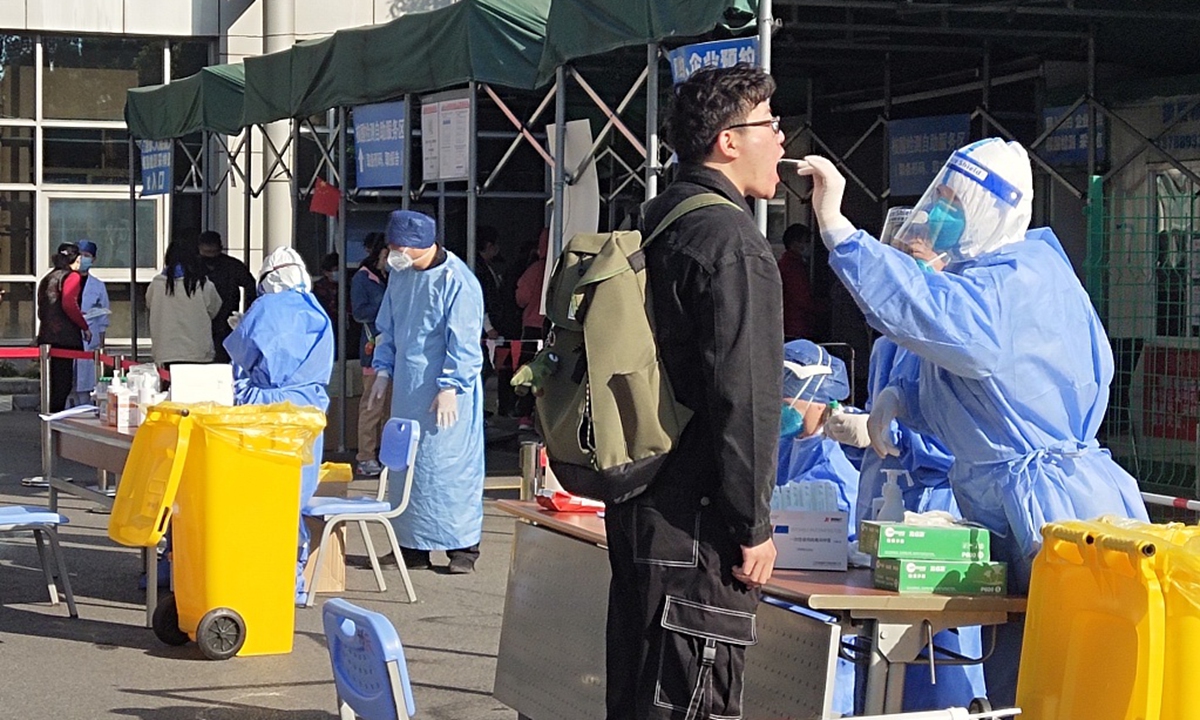Massive nucleic acid testing helps China control epidemic in relatively short time: top medical advisor Zhang Boli
By Liu Caiyu Source: Globaltimes.cn Published: 2020/11/23 11:49:37

Photo: CFP
Amid concerns brought by the rebound of infections in Shanghai, Tianjin and Manzhouli, China’s top medical advisor said massive nucleic acid testing is a scientific strategy for screening out potential patients in regions where there is a risk of novel coronavirus spreading, and also the key to why China can control the epidemic in a relatively short time.
Zhang Boli, an academician with the Chinese Academy of Engineering, told the Global Times in an exclusive interview on Monday that “it is better to check 1,000 more than to miss one case. This is not a waste of resources, but a scientific method, as it can help block the source and route of transmission.”
He said that testing all who are exposed to risks is the best interpretation of the concept that "life is supreme.” It is the high credibility of the Chinese government and the sense of responsibility of Chinese citizens that makes it possible to roll out massive nucleic acid testing schemes in cities where there have been COVID-19 flare-ups.
“China is the only place in the world that can implement such strong prevention and control measures. This is also the reason why China has been able to control the epidemic in a relatively short time,” Zhang noted.
After an outbreak, people at high and medium risk must receive nucleic acid tests. At the same time, health authorities track patients’ travel histories, disinfect the places that patients have been to, and later quarantine and test their close contacts. But when the patients’ activities expand to quite large areas or they have come into contact with large numbers of people, large-scale testing will be used to screen for potential infections, Zhang noted.
Shanghai Pudong Airport is carrying out nucleic acid testing after several cargo handlers and close contacts tested positive for the coronavirus. Massive testing also took place in Tianjin’s Binhai new area where eight patients were found, and in China’s largest land port of Manzhouli, where two patients were reported.
The Chinese academician said the recent emergence of sporadic cases shows clear evidence that goods can transmit the virus to human beings. Despite that, the swift response from local governments meant the virus was prevented from spreading more widely.
Chinese cities have accumulated rich experience in dealing with sporadic cases, have developed mature and complete response mechanisms, and can control the spread of the epidemic in a timely manner. This can be seen more clearly if you compare it with how other countries and regions are dealing with the virus, Zhang noted.
In recent cases in Tianjin, Shanghai, and Inner Mongolia’s Manzhouli, local governments have quickly activated emergency response mechanisms, implemented precise management policies, and quickly quarantined the relevant personnel. Citizens in the affected areas have also been very cooperative. These powerful measures have prevented the spread of the outbreak.
Under China’s strict and effective prevention and control measures, there will never be another major outbreak like the one in Wuhan, and even a small-scale outbreak such as the one in Beijing’s Xinfadi market is a low probability event. However, multiple, sporadic or individual cases may appear, and the emergence of a few, or even a few dozen confirmed cases cannot be ruled out, Zhang believed.
Posted in: SOCIETY